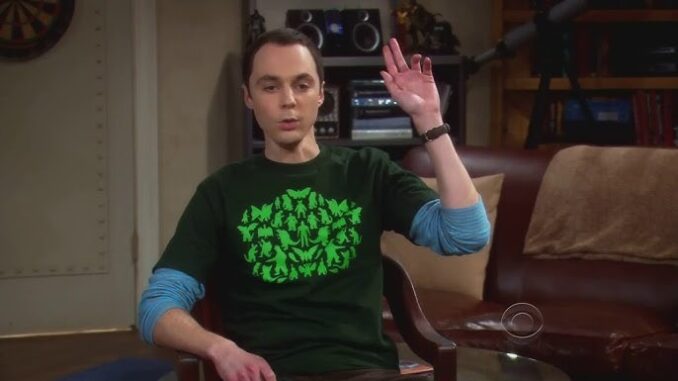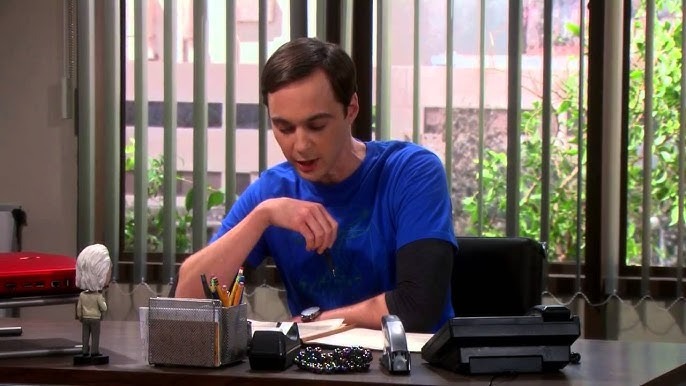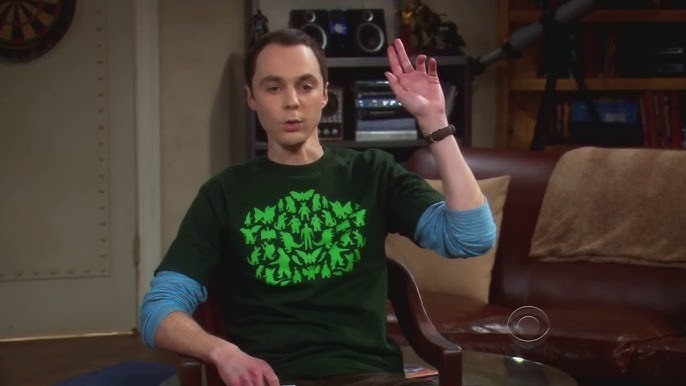
Could Sheldon Cooper, the quirky genius physicist from The Big Bang Theory, be harboring a darker, more sinister side? Fans know him as the socially awkward, eccentric scientist with a brilliant mind and rigid routines. But what if beneath his childlike demeanor lies the heart of a potential supervillain? A deeper look into his upbringing, behavior, and intellect reveals a theory that might make you see Sheldon in a new light.
Born on February 26, 1980, in a Kmart in Galveston, Texas, Sheldon’s life began in an unusual way. Raised alongside his twin sister Missy and older brother Georgie, he quickly stood out for his extraordinary intellect, but also for his social oddities. His mother’s frequent remarks about his siblings being “dumb as soup” only fueled his sense of intellectual superiority. Combined with relentless childhood bullying, Sheldon began to cultivate his unique personality—one that hints at a genius with a touch of chaos.
Sheldon’s Childhood: The Making of a Villain?
Sheldon’s early life was a mix of nerdy aspirations and emotional struggles. Growing up with a deeply religious mother, his emotional development was stunted by strict routines and a lack of spontaneity. According to psychologist Erik Erikson’s theories, the relationship between early caregivers and children plays a crucial role in shaping how individuals form attachments. Sheldon’s rigid adherence to routines, his need for order, and his discomfort with social situations suggest an emotionally complex individual, not unlike a misunderstood villain.

Despite his early cognitive brilliance—he went to college as a child and authored groundbreaking papers—Sheldon struggled with basic social skills. His failure to understand sarcasm, humor, and social cues further isolated him from his peers, adding to his emotional distance. This is the classic foundation of a villain: immense intelligence coupled with emotional detachment.
The Dark Side of Sheldon’s Genius
But what if Sheldon’s quirky traits and awkwardness are just a mask for a darker agenda? His need for control, his superiority complex, and his constant disregard for others’ emotions could point to a hidden desire for power—a common trait in many iconic villains. For example, Sheldon’s creation of a robot to defend himself against his sister in The Big Bang Theory is a humorous but telling moment that hints at his ability to combine intellect with less-than-ethical behavior.
Looking deeper into his personality, scientific studies suggest that factors like brain chemistry and hormones, especially oxytocin (the so-called “bonding hormone”), can significantly impact social interactions. Sheldon’s difficulty in processing social and emotional cues might further isolate him, giving rise to more villainous tendencies.

In addition to his emotional struggles, Sheldon often showed a striking lack of empathy. His interactions with friends, though often played for laughs, sometimes resulted in unintentional emotional harm. Whether it was mocking Leonard, belittling Penny, or asserting dominance over his group, Sheldon’s behavior occasionally bordered on manipulative and controlling, raising the question: could he slip into villainy if given the right push?
Could Sheldon Turn to the Dark Side?
Sheldon Cooper’s character is undeniably unique. His brilliant mind, odd routines, and emotional detachment create a fascinating blend of charm and complexity. But it’s these same traits that make him a potential supervillain in the making. His past traumas, lack of empathy, and superior intellect are characteristics shared by some of the most infamous villains in literature and film.
While Sheldon remains a beloved figure in The Big Bang Theory for his comic relief and eccentricity, this theory opens up the possibility of an alternative narrative—one where Sheldon’s quirks aren’t just endearing, but are signs of a future supervillain in the making. Maybe under that lovable, geeky exterior, Sheldon is hiding something darker, just waiting for the right moment to unleash his genius in a way no one saw coming.